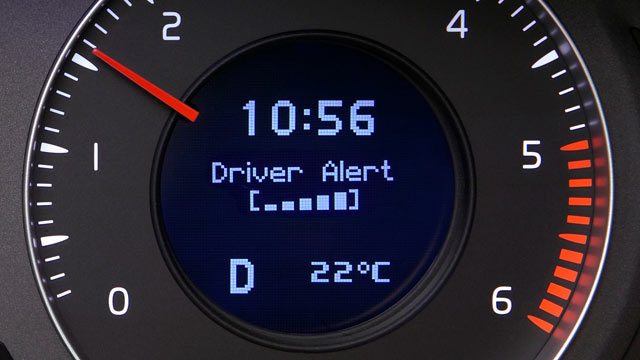We humans are flawed drivers. We sometimes get behind the wheel while sleepy or even drunk, and we're easily distracted, whether by our electronic devices or something pretty outside our window. In the gravest circumstances, we can even have a stroke or heart attack behind the wheel.

This is why researchers, app developers and car companies are developing technology to monitor flesh-and-blood drivers and help them avoid accidents. Advanced sensors in the passenger cabin can monitor a driver's vitals such as heart rate, eye movements and brain activity to detect everything from sleepiness to a heart attack.
Nissan is experimenting with an array of technology that detects drunken driving. A sensor in the transmission shift knob can measure the level of alcohol in a driver's sweat, while the car's navigation system can sound an alarm if it detects erratic driving, such as weaving across lanes.
The University of Leicester is working on a system that aims LED lights at the driver to track their eye movements and determine if they are paying attention to the road. But even awake and alert drivers can get distracted. Audi is testing an attention guard that uses cameras to monitor the driver's head position. If a driver looks away from the road for too long and the car's sensors see it is coming up on another vehicle, the car will sound an alarm and even slow down to prevent a collision.
"The overall objective is to keep you safe, to keep you moving," says Mohan Trivedi, director of UC San Diego's lab for intelligent and safe automobiles, who has worked with Audi on the technology. "One of the other things is a stress-free, enjoyable ride for the driver."
Then there are systems that use sensors to keep tabs on a driver's health. Ford has teamed up with health-tech companies on a glucose reader that alerts diabetic drivers when their blood-sugar level drops. Ford also has developed external sensors that can detect high pollen counts and monitor an asthmatic's breathing.
No comments:
Post a Comment